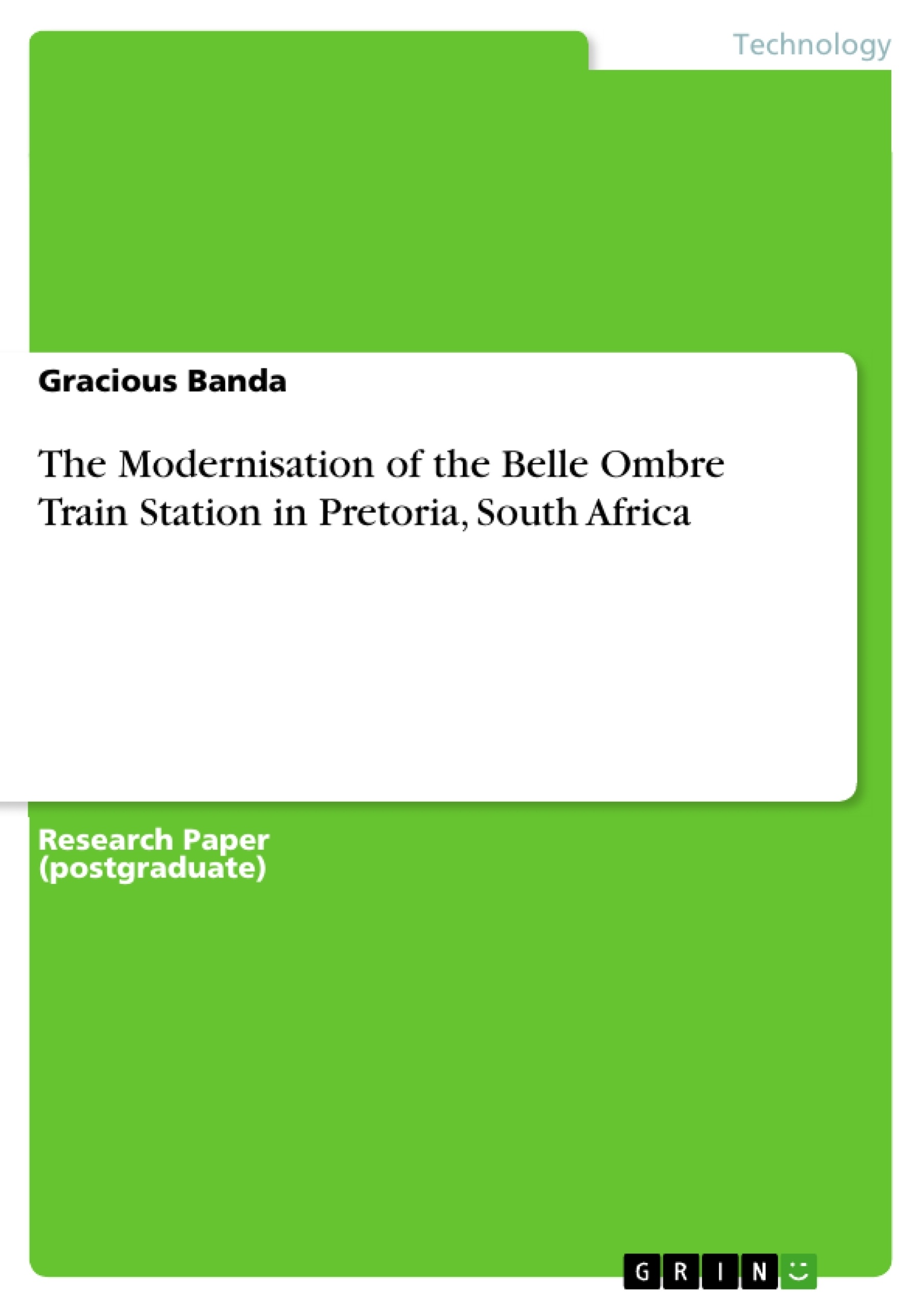Based on module study requirement to demonstrate competence in commercial and technical leadership throughout engineering project management and delivery of its outputs, one of the projects completed for a State-owned Company (SOC), Passenger Rail Agency of South Africa (PRASA SOC Limited), has been selected for this purpose. It included reconnaissance, site investigation, pre-feasibility and feasibility studies, environmental impact assessment, due diligence, analysis, design, specification and advisory on all Engineering aspects and disciplines from Concept development to Completion of component Projects within the overarching modernisation project.
The project report framework model used is based on New Engineering Contract (NEC) categorisation of contract by the Institution of Civil Engineers (1993) provisions for a Separate Design and Construction Contract (SDCC) focussing per Smith, N.J. (2002)., on three project pillars of Cost, Quality and Time allocation to the project together with the associated risks and risk mitigation methods. The agreed initial period was two and one half years commencing in July 2012. An inclusive (turn-key) Train station modernisation Capital fund allocation and contract budget was £23 million. The high level estimated final cost was in the region of £22 million. The proportion allocation for the mechanical and electrical portions stated above was to be below 30% of the total estimated final cost. This case study seeks to provide a balance between a selected executed project and how the approaches to project management activities set out in the class module structure for this study is contrasted with the approaches negotiated in execution of this selected project.
Table of Contents
- Acknowledgement
- Glossary of terms and abbreviations:
- Overview
- 1. Executive Summary
- 2. Introduction
- 2.1. General:
- 2.2. Background Information:
- 2.3. Aim...........
- 3. Methodology
- 4. Project Execution Plan
- 5. Analysis of project management activities
- 5.1. Communication Management
- 5.2. Leadership activities..
- 5.3. Commercial Leadership
- 5.4. Technical Leadership
- 6. Quality and continuous improvement
- 6.1. Continuous Improvement Theories.
- 6.2. Organizational and Quality Management standards applied during the project .
- 6.3. Project Risks Analysis..
- 7. Ethics and Professional Responsibility
- 8. Final reflections…………
- 9. Discussion and Conclusion..
- 10. Bibliography
- 11. Definitions...........
- 12. Appendices
Objectives and Key Themes
This project portfolio focuses on the modernisation of the Belle Ombre Train Station in Pretoria, South Africa. It aims to present a comprehensive analysis of the project management activities, focusing on communication, leadership, quality, and continuous improvement.
- Project Management Strategies and Techniques
- Quality and Continuous Improvement in Engineering Projects
- Leadership and Communication in Project Management
- Ethics and Professional Responsibility in Engineering
- Analysis of Project Risks and Mitigation Strategies
Chapter Summaries
- Chapter 1: Executive Summary: This chapter provides a concise overview of the entire project, outlining its objectives, methodology, key findings, and conclusions.
- Chapter 2: Introduction: This chapter introduces the background information about the Belle Ombre Train Station and its need for modernisation. It also outlines the general aims and objectives of the project.
- Chapter 3: Methodology: This chapter describes the research methodology used to gather data and analyze the project management activities. It outlines the methods employed for data collection, analysis, and interpretation.
- Chapter 4: Project Execution Plan: This chapter details the implementation plan for the modernisation project, outlining the key phases, activities, and milestones.
- Chapter 5: Analysis of project management activities: This chapter focuses on the core project management activities, including communication management, leadership roles, and commercial and technical leadership. It explores the strategies and techniques used in each area.
- Chapter 6: Quality and continuous improvement: This chapter examines the quality management and continuous improvement strategies applied during the project. It explores the theoretical underpinnings of continuous improvement, the relevant standards applied, and the project risk analysis.
- Chapter 7: Ethics and Professional Responsibility: This chapter discusses the ethical and professional responsibilities that guided the project execution. It emphasizes the importance of adhering to ethical principles and professional standards in engineering.
- Chapter 8: Final reflections: This chapter provides the author's personal reflections on the project, outlining key learning experiences and insights gained during the project execution.
Keywords
The main keywords and focus topics of this project portfolio include project management, modernisation, train station, communication, leadership, quality, continuous improvement, ethics, professional responsibility, risk analysis, and South Africa.
- Quote paper
- MSc, IEng Gracious Banda (Author), 2016, The Modernisation of the Belle Ombre Train Station in Pretoria, South Africa, Munich, GRIN Verlag, https://www.grin.com/document/412005




